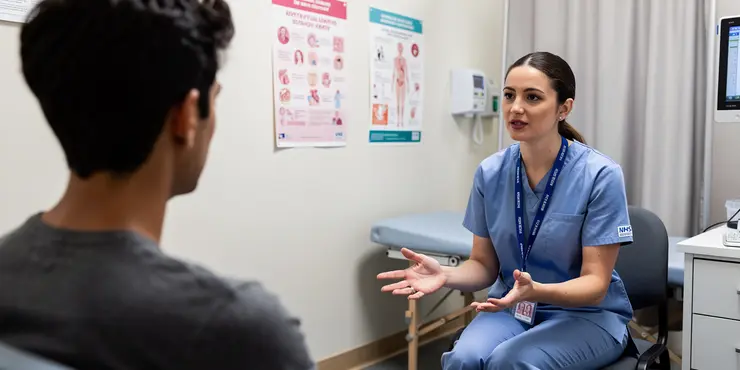
Find Help
More Items From Ergsy search
-
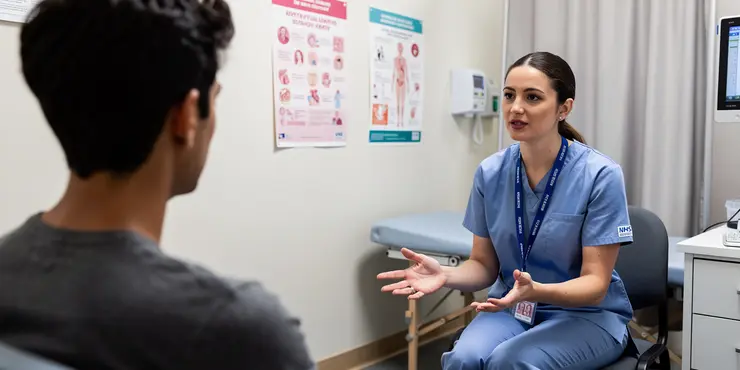
What is HIV?
Relevance: 100%
-

What is HIV / AIDS?
Relevance: 96%
-
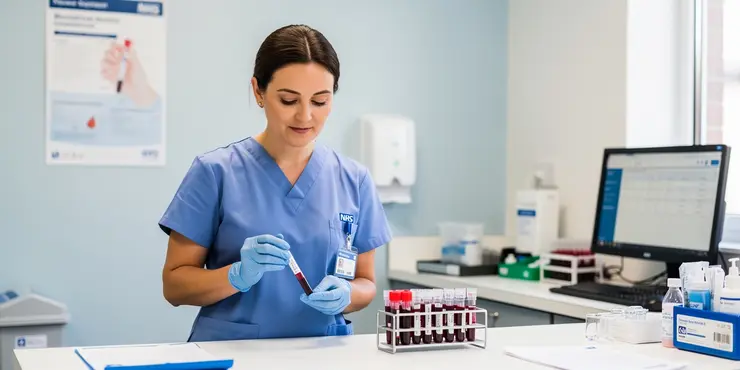
How is HIV diagnosed?
Relevance: 95%
-
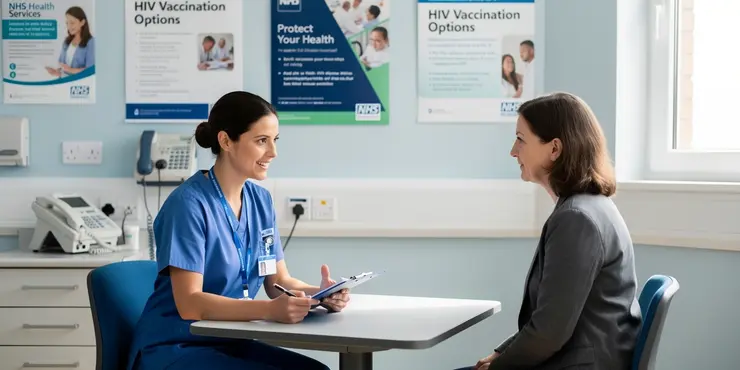
Are there vaccines available for HIV?
Relevance: 95%
-

How is HIV transmitted?
Relevance: 94%
-

HIV and pregnancy | NHS
Relevance: 94%
-

Sexual Health - HIV Testing
Relevance: 91%
-
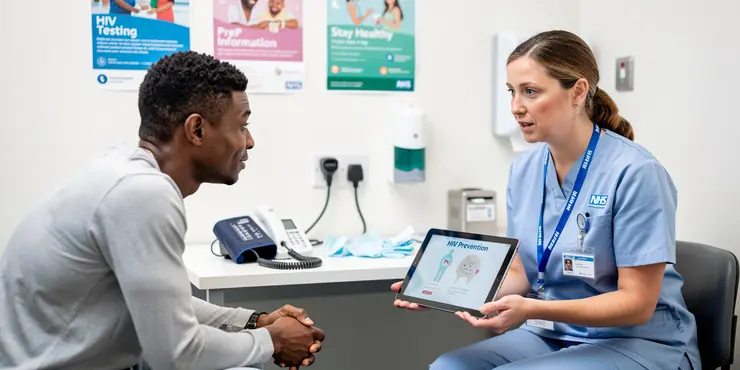
How can HIV be prevented?
Relevance: 91%
-

HIV - My Story - Florence | NHS
Relevance: 90%
-
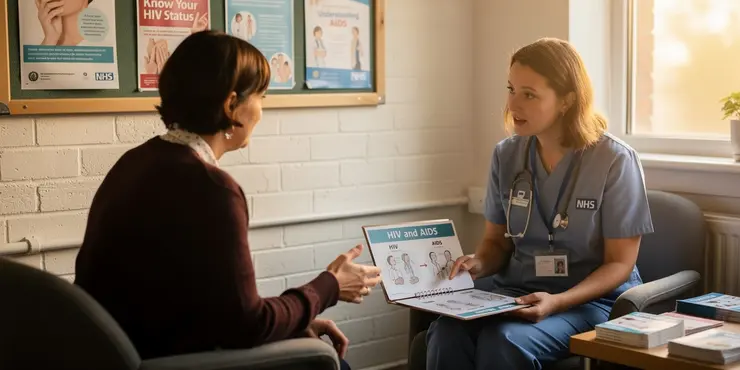
What is the difference between HIV and AIDS?
Relevance: 89%
-

Can people with HIV lead normal lives?
Relevance: 85%
-

Is HIV only a concern for certain groups of people?
Relevance: 85%
-

Can HIV be transmitted through insect bites?
Relevance: 85%
-
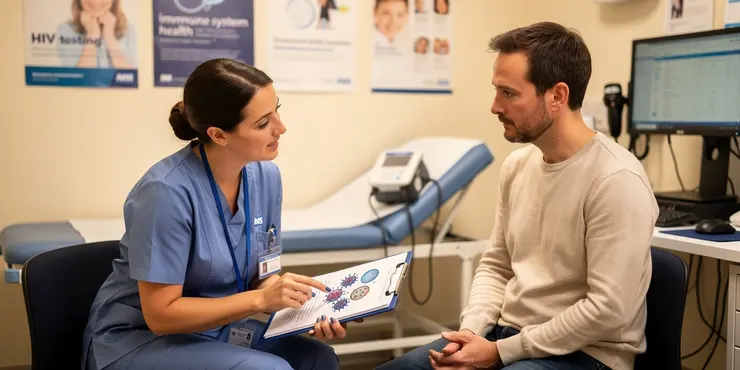
How does HIV affect the immune system?
Relevance: 85%
-
Can HIV be transmitted through blood transfusions?
Relevance: 85%
-
What role does stigma play in the HIV epidemic?
Relevance: 81%
-

Is it safe for a partner of someone with HIV to have children?
Relevance: 81%
-
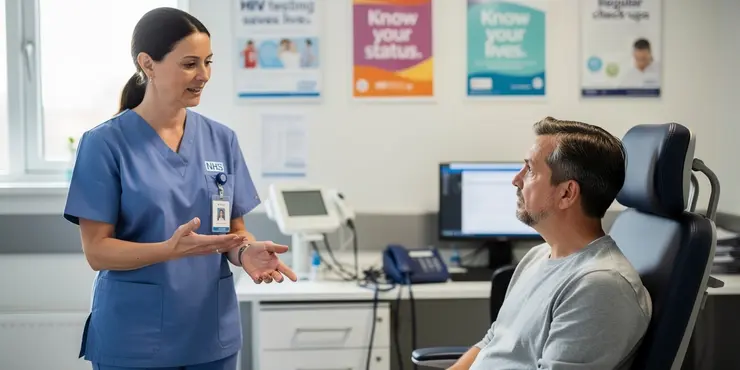
How often should someone get tested for HIV?
Relevance: 79%
-
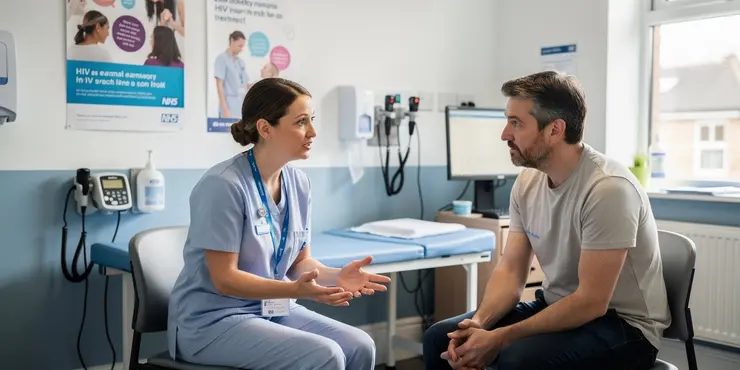
Can HIV be cured?
Relevance: 70%
-

What are the symptoms of HIV?
Relevance: 70%
-
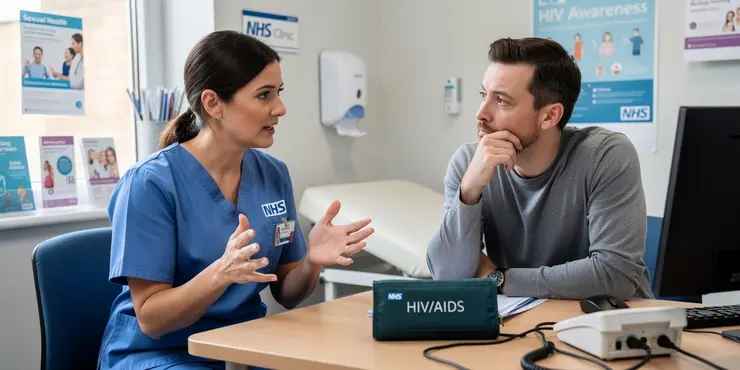
What is AIDS?
Relevance: 47%
-

What is antiretroviral therapy (ART)?
Relevance: 43%
-

What does an undetectable viral load mean?
Relevance: 42%
-
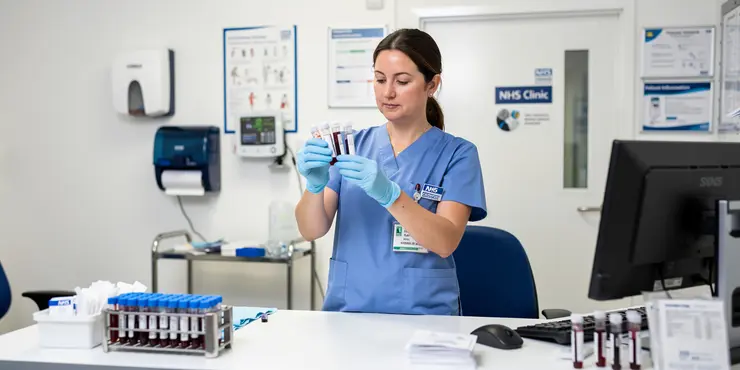
What other viruses are tested for in blood donations?
Relevance: 38%
-

Can HIV be transmitted through casual contact?
Relevance: 38%
-

What diseases can be spread by blood transfusions?
Relevance: 31%
-
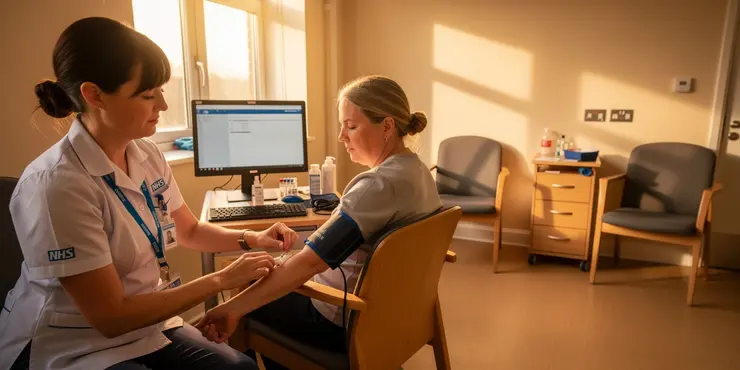
How is blood screened to prevent disease transmission?
Relevance: 31%
-
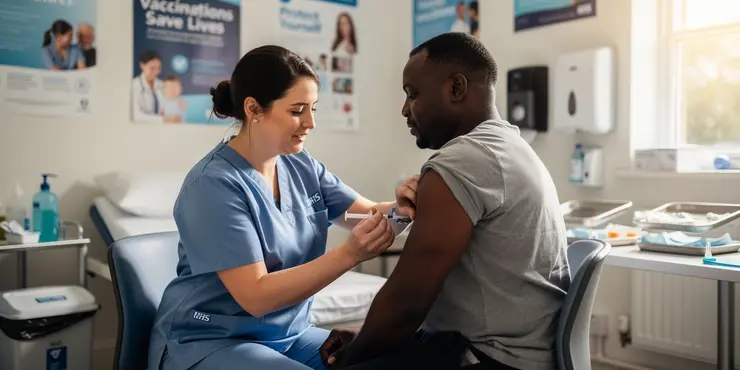
What are the guidelines for meningitis vaccination for HIV-infected individuals?
Relevance: 31%
-

Sexually transmitted infections STIs
Relevance: 29%
-
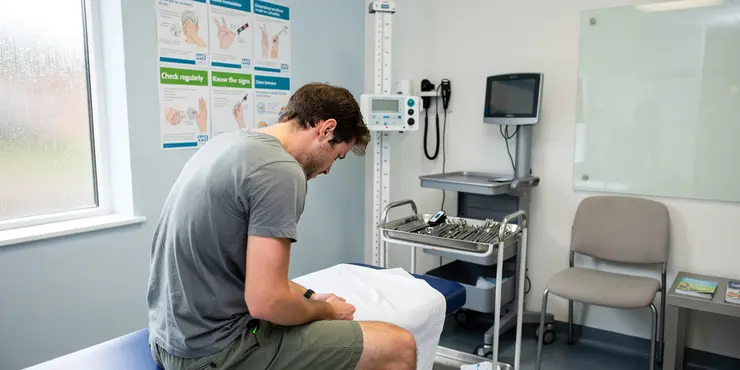
Who is at risk for testicular cancer?
Relevance: 27%
-

Are there any long-term effects of gonorrhoea?
Relevance: 25%
-

What causes shingles?
Relevance: 24%
-

Who is most at risk from measles?
Relevance: 24%
-
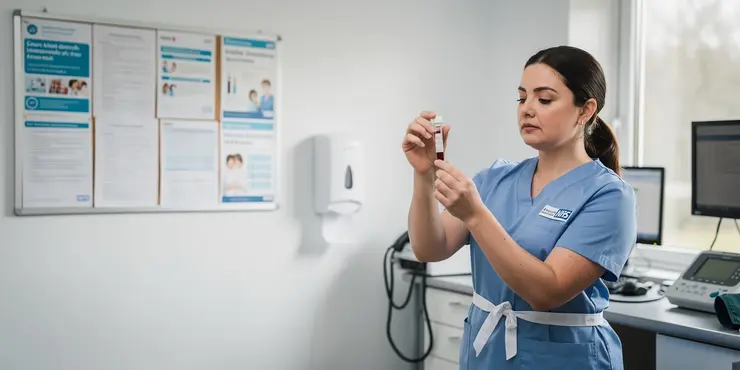
What is the most common disease transmitted by blood transfusion?
Relevance: 19%
-

Who is at risk of developing shingles?
Relevance: 18%
-

Let's Talk Sexual Health - Home Self Testing Kits
Relevance: 18%
-

Why is antibiotic resistance a concern with gonorrhoea?
Relevance: 18%
-
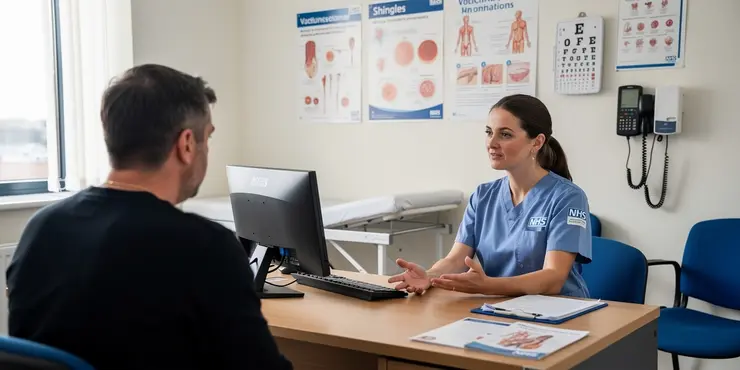
What causes shingles?
Relevance: 17%
-
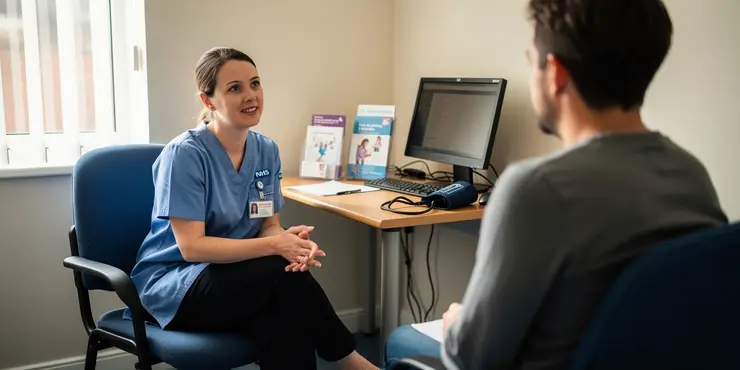
The Different Roles in Sexual Health and Family Planning UK
Relevance: 17%
-
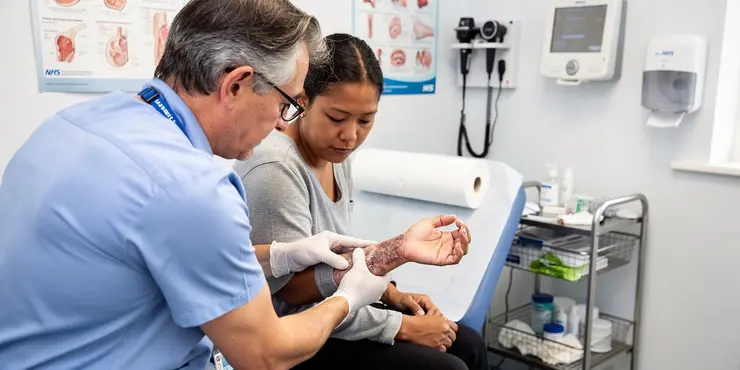
What is crusted scabies?
Relevance: 17%
Understanding HIV
Human Immunodeficiency Virus (HIV) is a virus that attacks the immune system, specifically the CD4 cells (T cells), which are crucial for immune response. By damaging these cells, HIV impairs the body's ability to fight infections and diseases, making sufferers more vulnerable to other illnesses. It's a significant health issue in many parts of the world, including the UK.
Transmission of HIV
HIV is transmitted from person to person primarily through certain body fluids such as blood, semen, vaginal fluids, anal fluids, and breast milk. The most common routes of transmission include unprotected sexual contact, sharing needles or syringes when using drugs, and from mother to child during childbirth or breastfeeding. It's important to note that HIV cannot be spread through casual contact like hugging, shaking hands, or sharing food and water.
Symptoms of HIV
Individuals infected with HIV may experience flu-like symptoms within two to four weeks after exposure. These can include fever, chills, rash, night sweats, muscle aches, sore throat, fatigue, swollen lymph nodes, and mouth ulcers. However, some individuals may not show any symptoms for several years. Without treatment, HIV can progress to Acquired Immunodeficiency Syndrome (AIDS), a more severe phase of the virus where the immune system is extensively damaged.
Diagnosis and Testing
Early diagnosis is crucial in managing HIV effectively. Testing is the only way to determine if someone has the virus. In the UK, various testing options are available, including free testing at sexual health clinics, GP surgeries, and community settings. Home testing kits can also be purchased online. Regular testing is especially recommended for those who are at higher risk of exposure to the virus.
Treatment of HIV
While there is currently no cure for HIV, it can be managed effectively with Antiretroviral Therapy (ART). These medications help control the virus, maintaining a low viral load and preserving the immune system's health. Individuals on effective ART treatment can lead healthy lives, and the risk of transmitting the virus to others is significantly reduced, making regular treatment crucial.
Prevention of HIV
Preventative measures play a significant role in combating HIV. Safe sex practices, such as using condoms, significantly reduce the risk of transmission. For those at high risk, Pre-exposure Prophylaxis (PrEP) is a medication that can prevent HIV if taken correctly. Additionally, harm reduction strategies, such as needle exchange programmes, are effective in preventing transmission among drug users.
Living with HIV in the UK
Thanks to advances in treatment and awareness, individuals with HIV in the UK can lead fulfilling lives. It is vital to combat stigma and provide support for those living with the virus. Support services, counselling, and community groups are available to help individuals manage the physical and emotional aspects of living with HIV.
Understanding HIV
HIV stands for Human Immunodeficiency Virus. It is a virus that makes it hard for the body to fight off sickness. HIV attacks important cells in our body that help keep us healthy. When these cells get hurt, it's easier for us to get sick. Many people in the world, including in the UK, are living with HIV.
How HIV Spreads
HIV can spread from one person to another through certain body fluids like blood, semen, vaginal fluids, anal fluids, and breast milk. People can get HIV by having sex without a condom, sharing needles, or from mother to baby during birth or breastfeeding. HIV does not spread through hugging, shaking hands, or sharing food and drinks.
Signs of HIV
People with HIV might feel like they have the flu two to four weeks after getting the virus. They might have a fever, feel very tired, have a sore throat, and get muscle aches. Some people don't get any signs for a long time. Without treatment, HIV can turn into a more serious illness called AIDS.
Checking for HIV
Finding out early if someone has HIV is very important. The only way to know is by getting tested. In the UK, people can take a free test at health clinics or at their doctor's office. There are also home test kits. People at high risk should get tested often.
Treating HIV
There is no cure for HIV, but medicine can help people live healthy lives. This medicine is called Antiretroviral Therapy (ART). It helps control the virus and keeps the immune system strong. People taking ART are less likely to spread the virus to others.
Stopping HIV
There are ways to help stop HIV from spreading. Using condoms during sex helps a lot. People at high risk can take a medicine called PrEP to prevent getting HIV. Sharing needles should be avoided and needle exchange programs can help keep drug users safe.
Living with HIV in the UK
With good treatment and support, people with HIV can live full lives in the UK. It is important to support them and fight against unfair treatment. There are services and groups that offer help and support to people living with HIV.
Frequently Asked Questions
What does HIV stand for?
HIV stands for Human Immunodeficiency Virus.
How does HIV affect the body?
HIV attacks and destroys cells in the immune system, weakening the body's ability to fight infections and diseases.
What is the difference between HIV and AIDS?
HIV is the virus that causes infection, while AIDS (Acquired Immunodeficiency Syndrome) is the most advanced stage of HIV infection.
How is HIV transmitted?
HIV is transmitted through contact with infected bodily fluids such as blood, semen, vaginal fluids, rectal fluids, and breast milk.
Is there a cure for HIV?
There is currently no cure for HIV, but it can be managed with antiretroviral therapy (ART).
Can HIV be prevented?
HIV can be prevented by using condoms, taking Pre-Exposure Prophylaxis (PrEP) if at high risk, and avoiding sharing needles.
What are the symptoms of HIV?
Early symptoms of HIV can include flu-like symptoms such as fever, sore throat, and fatigue, but some may not have symptoms for years.
How is HIV diagnosed?
HIV is diagnosed through blood tests that detect the presence of the virus or the antibodies produced in response to it.
Can I get HIV from kissing?
HIV is not transmitted through casual contact such as kissing, hugging, or sharing utensils.
How does antiretroviral therapy (ART) work?
ART works by keeping the viral load low, which helps maintain immune function and prevents the progression to AIDS.
Can HIV-positive people have children without passing the virus to them?
With medical support and proper treatment, the risk of mother-to-child transmission of HIV can be less than 1%.
What is the 'window period' in HIV testing?
The window period is the time after exposure during which HIV tests may not detect the virus, typically ranging from 10 days to 3 months.
Are there side effects to HIV medications?
Some people experience side effects from HIV medications, such as nausea, fatigue, and dizziness, but many manage them well.
Can you live a normal life with HIV?
With proper treatment and care, people with HIV can live long and healthy lives.
Can HIV be spread through sports activities?
The risk of HIV transmission through sports is extremely low and can be minimized with precautions like covering wounds.
What is viral load in HIV?
Viral load is the amount of HIV in the blood. Lower viral loads are associated with better health outcomes and reduced transmission risk.
Is it safe for HIV-positive individuals to donate blood?
HIV-positive individuals are not allowed to donate blood to ensure the safety of the blood supply.
What does 'undetectable' mean in the context of HIV?
Undetectable means that the viral load is so low that it can't be detected by standard tests, significantly reducing the risk of transmission.
How often should someone with HIV see their healthcare provider?
Individuals with HIV should have regular check-ups, typically every 3-6 months, to monitor their health and treatment.
What role does stigma play in the lives of people with HIV?
Stigma can affect the mental health and well-being of people with HIV, leading to discrimination and impacting access to care.
What does HIV mean?
HIV stands for Human Immunodeficiency Virus.
Here’s what it means: - Human: It affects people. - Immunodeficiency: It makes it hard for the body to fight off germs and stay healthy. - Virus: A tiny germ that can make people sick.
Helpful Tip: If you find reading hard, try using pictures or videos to learn. Ask someone if you have questions. They can help you understand better.
HIV means Human Immunodeficiency Virus.
What does HIV do to the body?
HIV is a virus that can make people sick.
Here is what it does:
- HIV attacks the body's helper cells, called CD4 cells. These cells help the body fight sickness.
- When there are not enough CD4 cells, the body can't fight off germs and viruses well.
- This means people with HIV can get sick easily.
If someone has HIV, it is important to:
- See a doctor regularly.
- Take medicine to help keep the virus under control.
Using pictures or talking to someone who knows about HIV can also help understand better.
HIV is a virus that harms the body's immune system. This immune system helps keep us safe from sickness.
When HIV is in the body, it makes it hard for the body to fight against germs and diseases.
To understand better, you can ask an adult to explain it to you.
You might also find it helpful to look at pictures or videos that show how the immune system works.
What is the difference between HIV and AIDS?
HIV is a type of germ. It can make people sick. But you can take medicine to feel better and stay healthy.
AIDS happens when HIV makes your body very sick. It means your body can't fight germs well. But with the right help, people can live a long time.
If you want to learn more, you can ask a doctor. They can help you understand.
HIV is a tiny germ that makes people sick. When someone gets really, really sick from HIV, it's called AIDS. AIDS is what happens when HIV gets really bad.
How do people get HIV?
HIV is a virus that people can catch in certain ways.
Here is how it can happen:
- From having sex with someone who has HIV without using a condom.
- By sharing needles for taking drugs with someone who has HIV.
- From a mother to her baby during birth or breastfeeding.
To stay safe, use condoms and never share needles. If you have questions, talk to a doctor or nurse.
HIV can be passed to someone if they touch certain body fluids. These fluids are blood, semen (from a man), vaginal fluids (from a woman), fluids from the bottom (rectal fluids), and breast milk.
Can HIV be healed?
Right now, there is no complete cure for HIV. This means we can't make it go away completely yet. But there are medicines that can help people with HIV live a healthy life.
If you have HIV, it's important to take your medicine every day. This helps keep you strong and stops the virus from making you sick.
If you find reading hard, you can ask someone you trust to read with you. You can also use apps and websites that read out loud. They can make reading easier and more fun!
There is no way to make HIV go away completely. But taking special medicine called antiretroviral therapy (ART) can help you live with it.
Can you stop HIV?
Yes, you can stop HIV.
Here are some ways to help stay safe:
- Use a condom every time you have sex. It helps stop HIV and other germs.
- Do not share needles if you use drugs. Sharing needles can spread germs.
- There is a medicine called PrEP. It can stop HIV. Ask a doctor about it.
- If someone might have HIV, they can take medicine called PEP after being around the virus. Ask a doctor right away.
- Get tested for HIV. It helps you know and stay safe.
Ask a doctor or nurse if you need help or have questions.
You can stop HIV by using a condom, taking medicine called PrEP if you are at high risk, and not sharing needles.
What signs show someone has HIV?
When someone first gets HIV, they might feel like they have the flu. They could get a fever, a sore throat, or feel very tired. But some people do not feel sick at all for a long time.
How do doctors know if someone has HIV?
Doctors use a special test to check for HIV. This test looks for signs of the virus in the blood. It's important to get tested to know for sure.
If you need help, you can ask someone you trust to go with you. You can also use a calendar or app to remember your test day.
Doctors can find out if someone has HIV with a blood test. The test looks for the virus or signs that the body is fighting the virus.
Can I get HIV from kissing?
No, you cannot get HIV from kissing. HIV is a virus that does not spread through saliva (spit). It is mainly spread through blood, semen, and other body fluids. So, kissing is safe.
If you want more help understanding this answer, you can use tools like text-to-speech or ask someone to explain it to you. You can also use a dictionary to look up words you don't know.
You cannot catch HIV by kissing, hugging, or sharing things like forks and spoons with someone.
How does antiretroviral therapy (ART) work?
Antiretroviral therapy, or ART, helps people with HIV feel better and live longer.
People take special medicine that stops the virus from making copies of itself. This keeps the virus count low in the body.
ART helps the body's defense system stay strong so it can fight other germs.
Remember to take your medicine every day. Use a pill box or set an alarm to help you remember.
ART helps keep the virus at a low level. This helps your body stay strong and healthy. It stops the disease from getting worse and turning into AIDS.
Can people with HIV have children without giving them HIV?
Yes, people with HIV can have healthy babies. Doctors can help. They give medicine to stop the virus from spreading. This keeps the baby safe.
Tools and tips:
- Visit the doctor regularly.
- Take the medicine every day.
- Ask questions if you do not understand.
With help from doctors and the right medicine, the chance of a mom passing HIV to her baby can be less than 1%.
What is the 'window period' in HIV testing?
The 'window period' is the time after someone gets HIV but before a test can show they have it. During this time, the test might not say "HIV" even if the person has it.
It can take a few weeks after getting HIV for the test to show it. This is because the body needs time to make enough changes the test can see.
It is important to know about the 'window period' so that you can get tested again if needed.
You can talk to a doctor or nurse to understand more. They can help answer your questions.
The window period is the time right after you may get HIV. During this time, tests might not find the virus. This can last from 10 days to 3 months.
Do HIV medicines have side effects?
HIV medicines can help you stay healthy, but they might cause some problems too. These problems are called side effects. Not everyone gets them, and some might be more serious than others.
If you feel unwell or different after taking your medicine, tell your doctor. They can help you feel better. Some people find it useful to keep a diary of how they feel each day.
It’s important to take your medicine just like your doctor tells you. You can ask someone you trust to remind you or use alarms on your phone to help remember.
Some people feel side effects from HIV medicine. This can include feeling sick in the stomach, feeling very tired, or feeling dizzy. But many people find ways to handle these side effects.
Can you live a normal life with HIV?
Yes, a person with HIV can live a normal and happy life.
There is medicine that helps people with HIV feel better and stay healthy.
Here are some tips for living well with HIV:
- Take your medicine every day.
- Visit the doctor regularly.
- Eat healthy food.
- Exercise and stay active.
- Talk to friends and family if you need support.
You can also use tools like reminder apps to help you take your medicine on time.
With the right help, people with HIV can live a long and healthy life.
Can you catch HIV from playing sports?
There is a very low chance of getting HIV when playing sports. You can make it even safer by covering any cuts or scrapes.
What is viral load in HIV?
Viral load means how much of the HIV virus is in a person's blood. It shows how many copies of the virus are there.
A doctor can do a blood test to find out the viral load. It's important because it helps know how sick someone might be and how well their medicine is working.
If the viral load is high, it means there is a lot of the virus in the blood. If it is low, there is less of the virus.
Tools that can help understand this better are talking with a doctor or using pictures or videos to explain. It can also help to have someone read this with you if it's hard to understand alone.
Viral load is how much HIV is in the blood. If the viral load is low, it means people usually feel better and are less likely to pass on the virus.
Can people with HIV give blood safely?
If you have HIV, it is not safe to give blood. This is because HIV can be passed to others through blood.
If you want to help others, there are many other ways. You can volunteer your time or donate things like clothes or food.
For more help, talk to a doctor or a community support group.
People who have HIV cannot give blood. This is to keep the blood safe for other people to use.
What Does 'Undetectable' Mean for HIV?
When we say someone with HIV is 'undetectable,' it means there is so little of the virus in their blood that it doesn't show up on a test. This happens when they take their medicine regularly.
If the virus is 'undetectable,' it is very, very hard to pass HIV to someone else.
To help, you can:
- Use simple words when you talk about HIV.
- Watch videos or look at pictures about how medicine helps with HIV.
- Ask a doctor or nurse to explain more if you have questions.
Undetectable means there is so little virus in the body that regular tests can't find it. This makes it much harder to pass the virus to other people.
How often should someone with HIV see their healthcare provider?
If you have HIV, it is important to see your doctor or nurse often. They will help you stay healthy. Here is what you should do:
- Go to the doctor or nurse at least every 6 months. That means twice a year.
- If you just found out you have HIV, go more often at first. This helps you start the right treatment.
- Ask your doctor or nurse when you should come back for a check-up. They will tell you what is best for you.
If you find it hard to remember appointments, you can:
- Use a calendar or planner.
- Set reminders on your phone.
- Ask someone you trust to remind you.
Seeing your doctor or nurse regularly helps keep you healthy and strong.
People with HIV need to see their doctor often. They usually go every 3 to 6 months. This helps the doctor check how they are doing and make sure their treatment is working.
How does stigma affect people living with HIV?
In simple words, what is stigma and how does it impact people who have HIV?
Stigma means treating someone badly or unfairly just because they have HIV. It can make them feel sad, scared, or alone. People with HIV may be afraid to tell others about their illness because of stigma.
Here are some things that can help:
- Talk about it: Encourage open and honest conversations about HIV. This helps everyone understand it better.
- Be kind and support: Show love and support to people with HIV. This makes them feel better and more included.
- Learn the facts: Read and learn about HIV. Knowing the truth helps stop stigma.
Feeling judged and treated unfairly can hurt people with HIV. It can make them feel bad and make it hard for them to get help.
Useful Links
This website offers general information and is not a substitute for professional advice.
Always seek guidance from qualified professionals.
If you have any medical concerns or need urgent help, contact a healthcare professional or emergency services immediately.
Some of this content was generated with AI assistance. We’ve done our best to keep it accurate, helpful, and human-friendly.
- Ergsy carfully checks the information in the videos we provide here.
- Videos shown by Youtube after a video has completed, have NOT been reviewed by ERGSY.
- To view, click the arrow in centre of video.
- Most of the videos you find here will have subtitles and/or closed captions available.
- You may need to turn these on, and choose your preferred language.
- Go to the video you'd like to watch.
- If closed captions (CC) are available, settings will be visible on the bottom right of the video player.
- To turn on Captions, click settings .
- To turn off Captions, click settings again.
More Items From Ergsy search
-

What is HIV?
Relevance: 100%
-

What is HIV / AIDS?
Relevance: 96%
-

How is HIV diagnosed?
Relevance: 95%
-

Are there vaccines available for HIV?
Relevance: 95%
-

How is HIV transmitted?
Relevance: 94%
-

HIV and pregnancy | NHS
Relevance: 94%
-

Sexual Health - HIV Testing
Relevance: 91%
-

How can HIV be prevented?
Relevance: 91%
-

HIV - My Story - Florence | NHS
Relevance: 90%
-

What is the difference between HIV and AIDS?
Relevance: 89%
-

Can people with HIV lead normal lives?
Relevance: 85%
-

Is HIV only a concern for certain groups of people?
Relevance: 85%
-

Can HIV be transmitted through insect bites?
Relevance: 85%
-

How does HIV affect the immune system?
Relevance: 85%
-
Can HIV be transmitted through blood transfusions?
Relevance: 85%
-
What role does stigma play in the HIV epidemic?
Relevance: 81%
-

Is it safe for a partner of someone with HIV to have children?
Relevance: 81%
-

How often should someone get tested for HIV?
Relevance: 79%
-

Can HIV be cured?
Relevance: 70%
-

What are the symptoms of HIV?
Relevance: 70%
-

What is AIDS?
Relevance: 47%
-

What is antiretroviral therapy (ART)?
Relevance: 43%
-

What does an undetectable viral load mean?
Relevance: 42%
-

What other viruses are tested for in blood donations?
Relevance: 38%
-

Can HIV be transmitted through casual contact?
Relevance: 38%
-

What diseases can be spread by blood transfusions?
Relevance: 31%
-

How is blood screened to prevent disease transmission?
Relevance: 31%
-

What are the guidelines for meningitis vaccination for HIV-infected individuals?
Relevance: 31%
-

Sexually transmitted infections STIs
Relevance: 29%
-

Who is at risk for testicular cancer?
Relevance: 27%
-

Are there any long-term effects of gonorrhoea?
Relevance: 25%
-

What causes shingles?
Relevance: 24%
-

Who is most at risk from measles?
Relevance: 24%
-

What is the most common disease transmitted by blood transfusion?
Relevance: 19%
-

Who is at risk of developing shingles?
Relevance: 18%
-

Let's Talk Sexual Health - Home Self Testing Kits
Relevance: 18%
-

Why is antibiotic resistance a concern with gonorrhoea?
Relevance: 18%
-

What causes shingles?
Relevance: 17%
-

The Different Roles in Sexual Health and Family Planning UK
Relevance: 17%
-

What is crusted scabies?
Relevance: 17%


